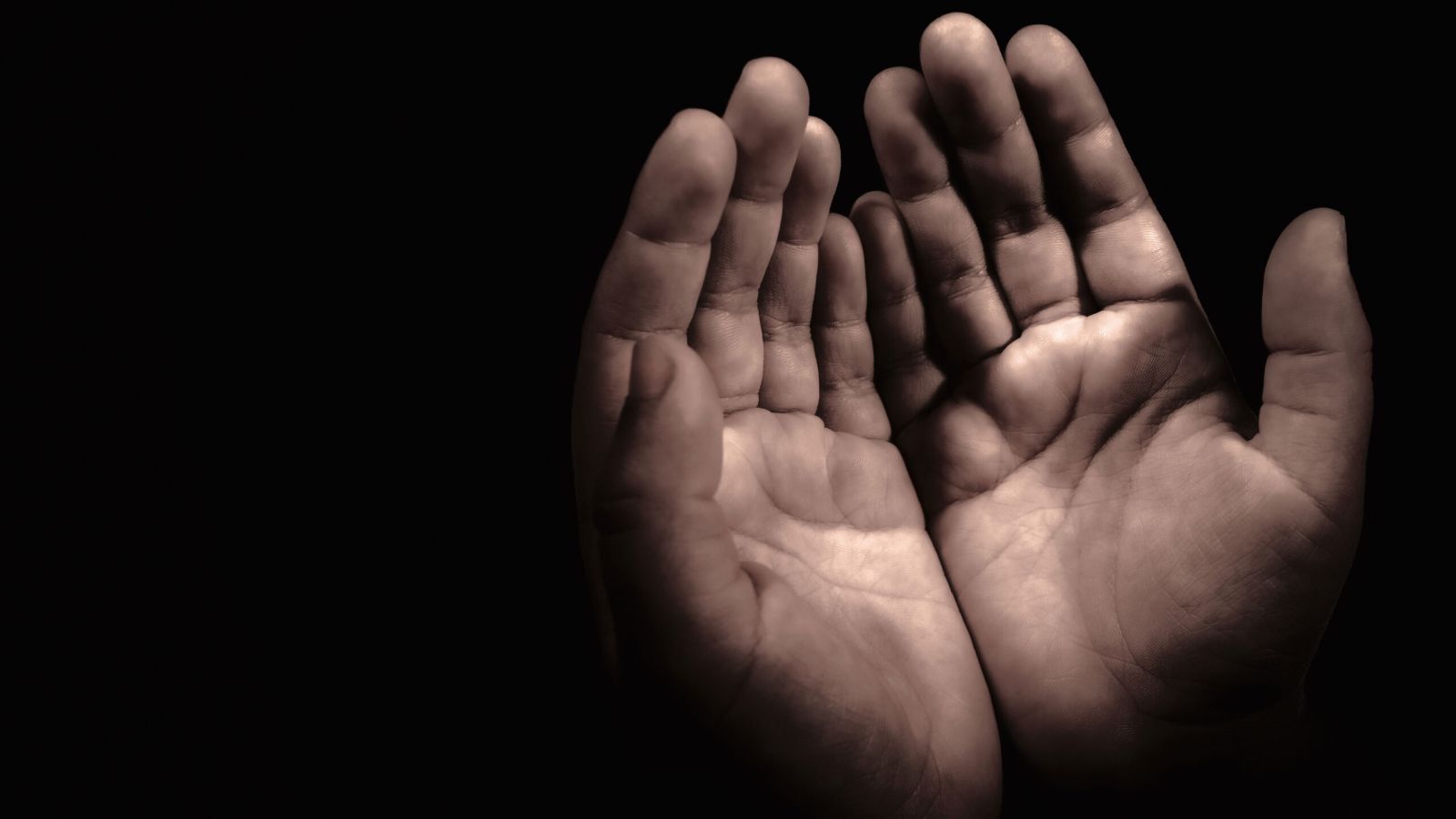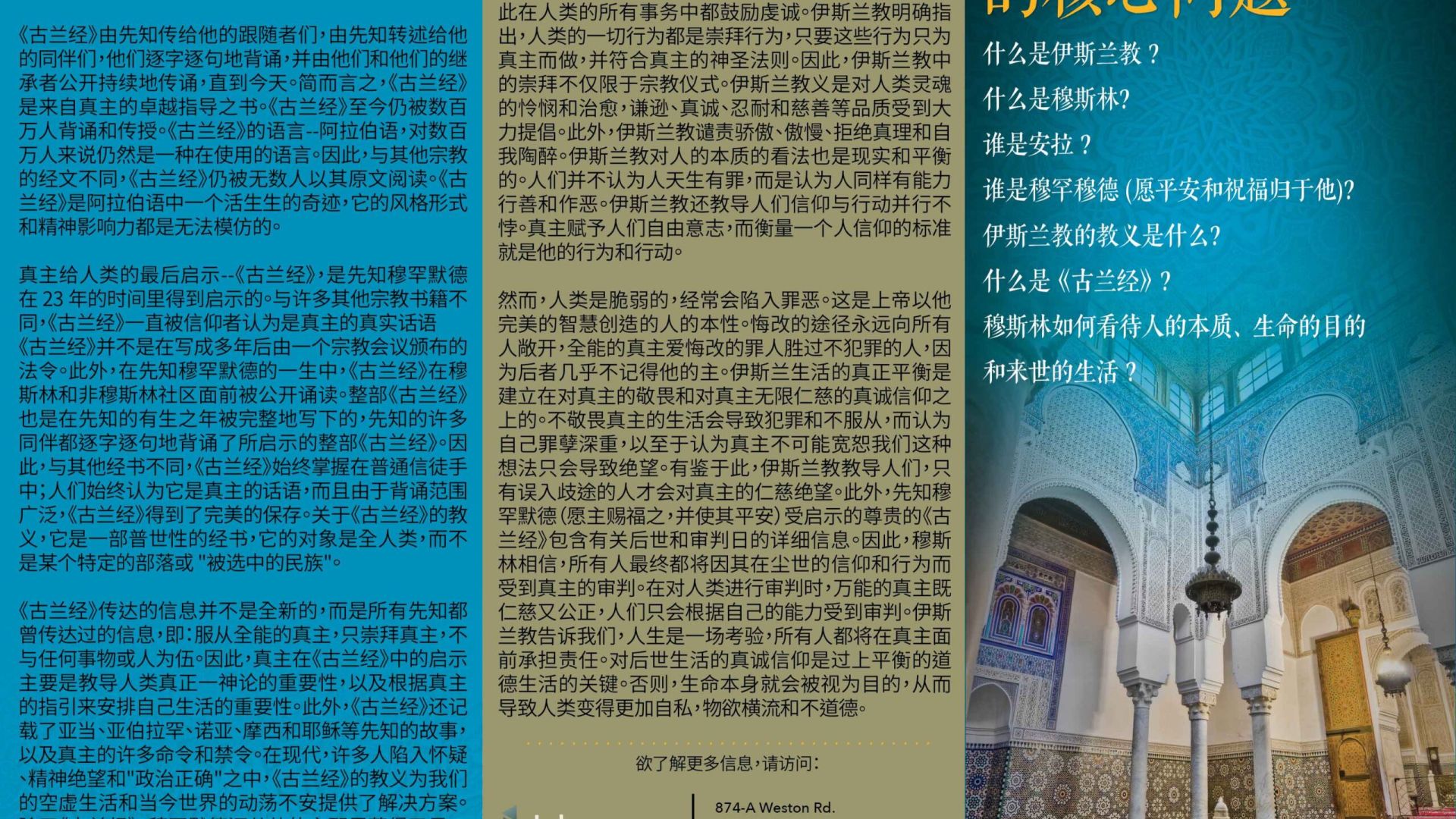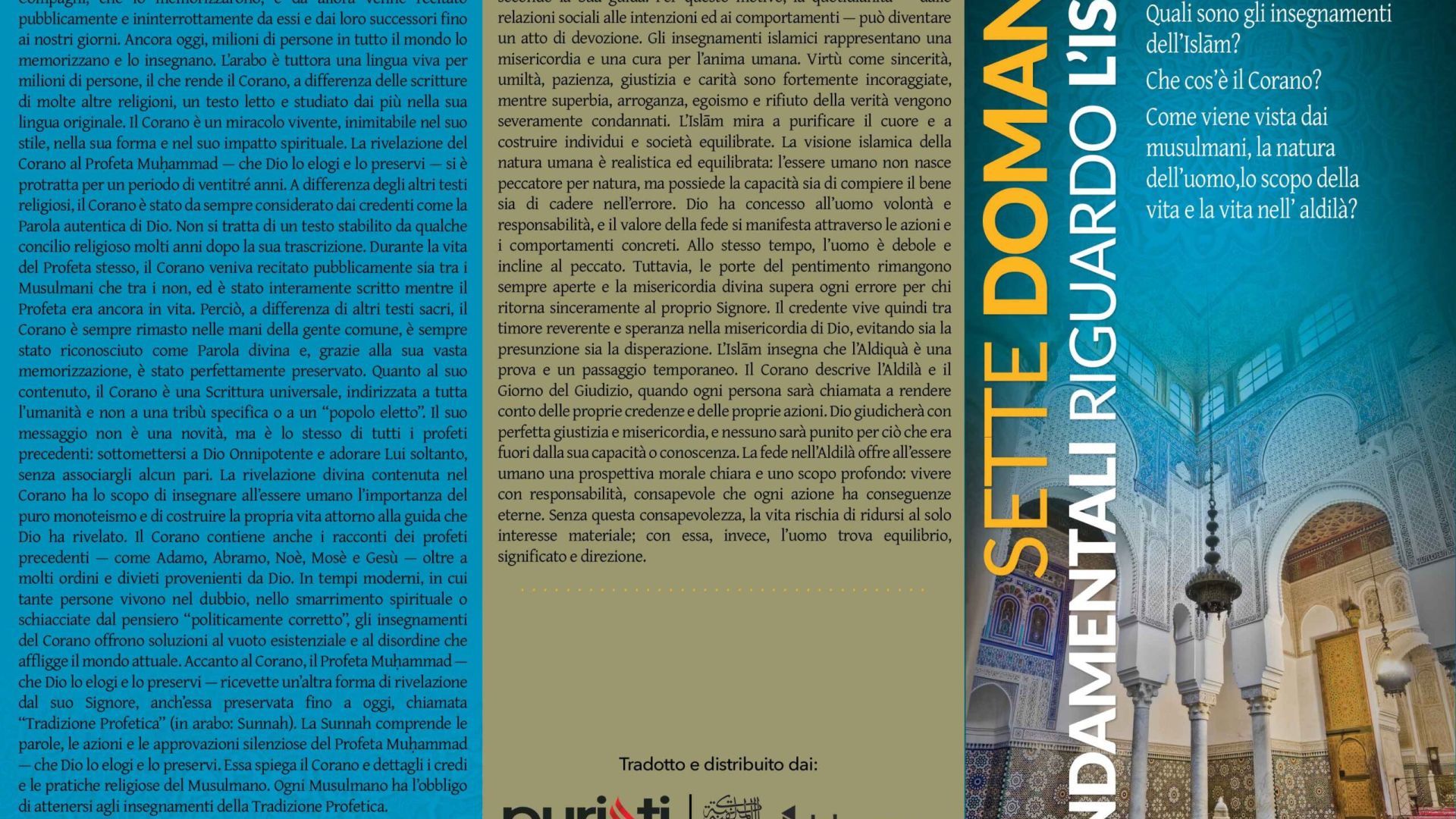The Importance of Murūʾah (Personal Integrity) in Islām
Imām Ibn al-Qayyim, Imām Muḥammad ibn Ṣāliḥ al-ʿUthaymīn, Imām Shams al-Din ibn Mufliḥ, Al-ʿAllāmah ʿAbd al-Muḥsin al-ʿAbbād
A brief guide to murūʾah, including its definition, how to engage in it positively, and manifestations of it to be avoided.
The Importance of Murūʾah (Personal Integrity) in Islām
Imām Ibn al-Qayyim, Imām Muḥammad ibn Ṣāliḥ al-ʿUthaymīn, Imām Shams al-Din ibn Mufliḥ, Al-ʿAllāmah ʿAbd al-Muḥsin al-ʿAbbād
A brief guide to murūʾah, including its definition, how to engage in it positively, and manifestations of it to be avoided.


- Defining the Concept of Murūʾah and Its Types
- The Murūʿah to Enjoin In
- Matters to be Avoided Related to Murūʿah
- The Three Types of Murūʿah: With Oneself, With Others and Most Importantly with Allāh
- Examples of the Different Manifestations of Murūʾah
- The General Guiding Principle that Governs Murūʾah
- Modern-Day Examples of Deficiencies in Murūʾah
1. Defining the Concept of Murūʾah and Its Types
Imām Ibn al-Qayyim said:
The word murūʾah in Arabic (literally) means to exemplify the characteristics of a human being, by which one achieves clear differentiation from wild animals as well as the accursed Shayṭān.
For every soul is subject to three different callers:
- A caller towards personifying the characteristics and mannerisms of Shayṭān: This is inclusive of arrogance, haughtiness, pride, envy, seeking elevation and position over others and condescension, injustice, evil, seeking to harm others, corruption, and deception.
- A caller towards the characteristics of wild animals: This is the call towards false desires.
- A caller towards the behaviour of the angels: This is inclusive of showing goodness to others in all its forms, sincerely advising others, piety, and knowledge accompanied by acts of obedience.
The true exemplification of murūʾah is to harbour hatred for the first two callers (shayṭān and false desires), while answering the third (upright moral character). Those lacking in the quality of murūʾah submit themselves in obedience to those first two callers, turning in answer to them regardless of circumstance.
True murūʾah occurs only when one is disobedient to the first two callers while answering the third. As some of the pious predecessors used to say: Allāh created the angels with intellect, devoid of false desires. He created the wild animals with desires, devoid of intellect. And he created the Children of Ādam, allowing them to possess both intellect and false desires. Those among them that utilise their intellect to overcome the inclinations of their false desires will have attached themselves to the ranks of the angels. While those who allow the inclinations of their false desires to overcome their intellects have demoted themselves to the level of wild animals.
For this reason, murūʾah has been defined as: One’s intellect overcoming one’s false desires.
While the jurists define it: for the servant to incorporate every characteristic from which beauty and adornment is derived, while completely abandoning that which mars his character, or is considered disgraceful and shameful. It has also been said: murūʾah is to conduct oneself with every good, righteous trait, while staunchly avoiding every detestable, ugly one.
2. The Murūʿah to Enjoin In
Its true essence is personified by complete avoidance of all statements, mannerisms and actions considered base, lowly, and abhorrent. As for showing murūʾah in one’s speech, it is to speak with grace, saying words of goodness, while displaying tranquility and calmness. The fruits and true benefit of such discourse is easily understood and attained by the listener. Murūʾah in one’s behaviour is to display a comfortable, cheerful attitude both towards those that are beloved and hated to a person. Murūʾah in one’s wealth is achieved when it is spent appropriately, upon that which is intelligent, consistent with the widespread norms of society, lawful from an Islamically legislative standpoint. Showing murūʾāh in one‘s rank and standing is to use that position to help those in need. Murūʾah when showing goodness to others and being of service is to engage in such acts quickly and with ease, showing no hesitation, fulfilling favours in a complete and perfect manner, while not acknowledging and reminding others of one’s own goodness whilst doing so. This is to show true murūʾah when dealing with others.
3. Matters to be Avoided Related to Murūʿah
Showing murūʾah necessitates the avoidance of matter. Among them is to refrain from arguments, blaming and scolding others, asking others for favours excessively, or showing off. It is to refrain from faulting those who have wrongfully taken what you are deserving of, while avoiding a close, thorough, minute examination when seeking reparations. It is to be mindless of the errors of the people, to the extent that they would surmise you are completely ignorant of their mistakes. It is to display a respectful bearing when dealing with the elderly, while maintaining the reverence and inviolability of one’s peers and cultivating the manners and good conduct of the youth.
4. The Three Types of Murūʿah: With Oneself, With Others and Most Importantly with Allāh
-
Murūʿah with Oneself
This is achieved by compelling oneself to engage only in that which is a means towards beatification and adornment, while abandoning all that mars and sullies his character, in the same way that he exerts complete control over himself in public. That is, if he desires a thing in private when he is alone, he controls himself as he would in public. For example, he does not expose his private parts when alone, nor does he belch loudly and obnoxiously if he is able to avoid it, just as he avoids loud flatulence when by himself if he is able to control it, nor does he eat voraciously or excessively even when eating alone.
-
Murūʾah with Others
This is achieved by abiding by the conditions of good conduct, shame, and exemplary behaviour in all one’s dealings with the creation. It is fully exemplified by refraining from showing them any characteristic or mannerism that he himself would hate from them. Let him observe others as a reflection of his own treatment of them, refraining from every single characteristic—inclusive of manner of speech, action, or behaviour—that he hates or actively avoids in others. Ensuring to engage in the actions he perceives as good and that are beloved to him in others.
For the person who conducts himself with this insight will derive benefit from everyone he accompanies or mixes with, regardless if those he is around appear perfect or deficient, whether they show exemplary or disrespectful manners, whether they have fully adopted the characteristics of murūʾah or not.
Frequently, people are granted an understanding of murūʾah from being subjected to those who conduct themselves in a manner that is antithetical to it. This has been narrated from some of the senior scholars, as it was mentioned that one of them once had a ward in his service with exceedingly bad manners— uncultured, uncouth, rude and harsh, whose conduct never aligned with that of the one he served. When he was once asked concerning him, he said: “I utilise him as a veritable education from which I derive insight into exemplary manners”. That is, he was able to acknowledge the reality of exemplary conduct by observing its exact opposite, while also practicing and becoming accustomed to conducting himself in an exemplary manner while being subjected to living with such a person and keeping his company daily, all the while showing patience.
-
Murūʾah with Allāh, the Manifest Truth, the Glorified
This is achieved by showing shyness in relation to the knowledge that He watches over him, fully acquainted with all that he engages in at every moment, with every breath. It is to strive to the very best of one’s abilities to correct faults and errors. For He has purchased the soul of His servants, and you currently are in the process of surrendering your soul to Him, its price (Paradise) being settled.1
It is not representative of murūʾah for one to simply submit to his own faults while expecting to receive his soul’s price in full (Paradise). Rather, one should perceive Allāh blessing him with the ability to correct his own errors, acknowledging that He is the One who has allowed this correction to take place in reality, not himself. One should have shyness before Him that prevents him from behaving in accordance with his natural desires, busying himself with the correction of his own faults and errors such that he never has time to investigate the faults of others.2
5. Examples of the Different Manifestations of Murūʾah
Imām Shams al-Dīn ibn Mufliḥ said:
It was narrated that the Prophet (صلى الله عليه وسلم) once said to a man: “What is murūʾah?” He replied: “It is to show religious uprightness, while rectifying all matters related to making a living, to possess a munificent, generous soul, and to join the ties of kinship”. He (صلى الله عليه وسلم) replied: “Such is murūʾah with us, as taken from the wise teachings of the family of Dāwūd”.
The concept of murūʾah was once mentioned to the Messenger of Allāh (صلى الله عليه وسلم), so he said concerning it: “As for our murūʾah, it is that we forgive those who oppress us, and give to those who have deprived us, and rekindle the relationship with our kinsfolk that have severed their ties with us”.
When ʿAbdullāh ibn ʿUmar (رضي الله عنه) was asked regarding murūʾah, he said: “To be chaste and rectify one’s earnings”.
Muʿāwiyah once asked al-Ḥasan ibn ʿAlī (رضي الله عنه) regarding murūʾah, he replied: “As for murūʾah, it is for a man to protect his soul (from sin), to maintain his religious affairs while showing excellence in his chosen profession. It is to abandon excessive arguments and to spread the salām (when meeting others).”
Al-Aḥnaf was once asked concerning murūʾah and replied: “It is that one educates himself in his religion, while being obedient to his parents, and showing patience when calamity befalls him”. He also said: “There is no murūʾah for the one who lies”.
When Ibn Shihāb al-Zuhrī was asked about murūʾah, he said: “To avoid harbouring doubts, rectifying one’s earnings, and fulfilling the needs of one’s family”.
Al-Zuhrī said: “To speak with eloquence is from murūʾah”.
Ibrāhīm al-Nakhaʿī said: “It is not representative of murūʾah for one to frequently turn to look at passersby in the street [casting aspersions and being suspicious of others]”. While others say: “Murūʾah is that one protects his honour, honouring and elevating the station of his brothers in Islām”.3
6. The General Guiding Principle that Governs Murūʾah
Imām Muḥammad ibn Ṣāliḥ al-ʿUthaymīn said:
Murūʾah is to engage in any act from which one may derive beautification and adornment of one’s character, while abandoning all that mars and sullies it. Therefore, it is a term that is inclusive of every single characteristic that the people consider to be good and righteous. This is the definition provided by the scholars which makes it a very clearly delineated term. However, its particulars may differ in relation to different communities. For example, among the people may be those who are considered aristocratic, from nobility, occupying an elevated station that would be criticised for engaging in certain actions of the commoner, while if those below such people were to engage in the very same act, it would not stipulate criticism. Therefore, we say to the former: Your engagement in such an act represents a breach of murūʾah, and to the latter, we say: Your engagement in this act does not violate your murūʾah.4
In general, murūʾah is to adopt exemplary manners and conduct, to behave in a way that is above being the subject of criticism or scrutiny. The finer points of this may be interpreted in consideration of the common practices of one’s community which is the fundamental basis for it, as well as this religion. Murūʾah is, therefore, the practices that the people consider to be good and righteous, while that which they unanimously agree as being detestable or abhorrent should be considered a breach of it. Then, in actuality it is the customs and practices of one’s community that determines its particulars. For example, a particular act may be considered a breach of murūʾah in one community but not in another. This is also subject to time periods as well.
7. Modern-Day Examples of Deficiencies in Murūʾah
For example, some scholars have said that it is considered a breach of murūʾah for a person to lie down and sleep amongst a group of people who are sitting. This is because such an act is considered abnormal. Others consider, for example, standing in front of or behind the line when praying to be a breach of their murūʾah. Others consider a person chewing gum in front of people, or eating publicly in the marketplace to be lacking in murūʾah. If the determination of murūʾah is established in accordance with the norms of the people, then whatever they collectively deem good should be considered to represent murūʾah and whatever they deem detestable should be contrary to it.
Lacking Murūʾah When Sitting in Gatherings
Let us examine these examples in accordance with this principle: Are these acts contrary to what the people are used to? As for one sleeping whilst on an outing with his companions who are sitting, this is not contrary to murūʾah. However, if he was, for example, to approach a gathering in which Islamic knowledge is being disseminated and lay prone amongst the students to sleep, this would definitely be considered contrary to murūʾah. The latter is considered an entirely different issue to the former as it has been said: “When one is amongst his beloved, the restraint and difficulty of exemplary behaviour may be overlooked”. For example, you may sit comfortably, stretching forth your legs when amongst friends but refrain from doing so when in a gathering deserving of a more respectable bearing. As narrated that Abū Ḥanīfah (رحمه الله) was once teaching his students with his legs stretched forth and a man deserving of veneration came upon the gathering. So Abū Ḥanīfah retracted his legs upon seeing him, believing this man to be among the senior scholars. This was narrated from him, although Allāh knows best if it is authentic.
Lacking Murūʾah in One’s Position
Murūʾah is to engage in any act from which one may derive beautification and adornment of one’s character according to what is known and accepted by the people. This is inclusive of generosity, bravery, possessing a jovial, pleasant demeanor, and being friendly to people. There are also acts that are specifically expected from certain people, such that those who have abandoned them should be considered as having behaved in a manner contrary to murūʾah, while others who do not have such responsibilities are blameless with regards to them. For example, a person who is hired as an ambassador to a country, positioned among its notable personalities, who does not treat visiting dignitaries and foreign ambassadors with respect and hospitality would be considered to have breached murūʾah. While if the average citizen was to approach a gathering without giving salām to such dignitaries or foreign ambassadors, it would not be considered a breach of his murūʾah, as such acts are not expected from the likes of him.
Lacking Murūʾah by Engaging in Singing and Dancing
Murūʾah is to abandon all that mars and sullies one’s character. This is inclusive of those who physically harm or oppress others, whether verbally or physically. Also contrary to murūʾah is dancing and singing. As the one who sings has not only behaved in a manner contrary to murūʾah, but has also displayed a lack of religious uprightness provided the style of singing is ḥarām. That is, one sings in a place that is unsuitable. To clarify this, if the leader of a caravan urges his camels forward by singing, then this is considered permissible as the Messenger (صلى الله عليه وسلم) silently approved of such singing.5 It is also permissible for labourers and diggers to sing whilst they work in order to give order and strength to the repetitive nature of their task. The evidence of this is that the companions and the Messenger (صلى الله عليه وسلم) sang whilst they dug the trench during the Battle of Khandaq, saying: “O’ Allāh! If it was not for You, we would never have been guided, nor would we have given in charity or performed ṣalāh”. They would also sing, raising and undulating their voices, saying: “If we were to sit whilst the Prophet works, it would have been a misguided act from us”.6 In other than these two situations, if the same labourer or caravan leader was to sing loudly whilst sitting amongst the people—for example, while they are eating—it would be considered contrary to murūʾah.
In consideration of this, singing is not considered to represent a breach of murūʾah in every circumstance, rather this is subject to elaboration. Any song whose subject matter is ḥarām is impermissible. This would include songs that speak about that which is despicable or abhorrent, which are considered a clear breach of murūʾah while also opposing this religion. As for songs whose subject matter is permissible, sung in its appropriate place, this is not considered a breach of murūʾah.
Lacking Murūʿah by Gatecrashing Events
Also, among the habits considered to represent a breach of murūʾah is the ṭufaylī (or gatecrasher) who attends gatherings of people without being invited. For example, he hears of a certain person holding a walīmah banquet and attends. This person is behaving in a manner that is contrary to murūʾah, except if a person is completely certain that the host of the gathering is gladdened by his presence. If the circumstance is thus, this person is not considered a ṭufaylī. Rather, his attendance—in such a situation—is considered to be a manifestation of his murūʾah and humbleness (in not seeking to be among the explicit invitees). As the saying goes: “It may be that a surprise meeting is received better than a planned one”; that is, there are certain people that are more gladdened by the arrival of a surprise guest who was not invited such that—upon seeing them—an expression of great happiness and surprise is observed on their faces. The real ṭufaylī is a person who surprises the people by attending a gathering uninvited, [but the host is not necessarily happy to see him]. There is also no difference between the ṭufaylī that gate-crashes seeking to partake in the food being served, and those that gate crash gatherings in which there is no food present. For example, a group of people are sitting in the desert to eat, and a man not from among them approaches to partake in the food. Here, despite there not actually being any ‘gate’ to crash (literally), this person is still considered a ṭufaylī; he has surprised the gathering with his presence in order to take a portion of their food and decrease the resultant portion of everyone present.7
Lacking Murūʾah in One’s Appearance
Also representative of a breach in murūʾah is to dress in any way that invites mockery or scorn from others. This is present and observed quite frequently. For example, to don a costume of any sort; wearing horns on one’s head, or wings on one’s sides. This is also frequently seen—as far as I am aware—in cartoons.
Lacking Murūʾah When Eating and Drinking
As for eating in the marketplace, this may be considered a breach to murūʾah except if it is done in the place within the market that has been delineated for dining [like a food court in a shopping mall]. Outside of this place, a person may also be excused for the consuming of a small mouthful of food or an apple. Despite this, our customs dictate that even this is considered a discrepancy in one’s murūʾah. For example, if a person were to enter one of our masājid, biting into an apple in his hand in front of the people, there would be those that would surmise him crazy. However, if he had eaten this same apple in a restaurant, it would not be considered a deficiency in his murūʾah.8
Another example, if a man was to leave his house, holding his lunch on a platter and eating from it whilst he strolls the marketplace, this would definitely be considered a deficiency in the murūʾah of this person. However, if a man was to stand by the door of his domicile with a pot of coffee or tea from which he drinks, would this be considered a manifestation of a deficiency in his murūʾah? We answer: The elucidation of this practice requires elaboration:
- If such a practice is widespread in the neighborhood where this person resides, then it should not be considered a breach of his murūʾah. This is because it represents a practice of the people of his locality, an act they have grown accustomed to seeing. This practice, for example, is common among our elderly here in this country. In the early part of the day, they will take a cushion or pillow and place it at the door to their homes, and they will sit there drinking tea or coffee in front of the people. To the extent that, they will call anyone who passes their house, saying: “Come! Partake!” There is nothing wrong with such a practice because it is a widespread habit of the people.
- If this practice is performed in a different way, one that the people are not accustomed to but rather would be critical of or cause the person to be the subject of blame or censure, then this act should be considered among those that breach one’s murūʾah.9
Public Changing Rooms with Respect to Murūʾah
[Q]: Does men entering public changing rooms represent a breach of murūʾah?
Al-ʿAllāmah ʿAbd al-Muḥsin al-ʿAbbād answers:
[A]: If entry into these changing rooms necessitates seeing the private parts of others, then it would definitely represent a breach of murūʾah. Rather, such rooms are impermissible from a purely Islamic perspective because the Messenger (صلى الله عليه وسلم) forbade viewing the private parts of others as narrated in the aḥadīth. As such, one must never look at the private parts of another nor should he allow others to view his private parts. There is also no doubt that the one who does so has engaged in an act that breaches his murūʾah, while also displaying a deficiency in exemplary conduct and manners which indicates a lack of praiseworthy shame and shyness.10
Endnotes:
[1] Referencing Sūrah al-Tawbāh 9:111
إِنَّ اللَّهَ اشْتَرَىٰ مِنَ الْمُؤْمِنِينَ أَنفُسَهُمْ وَأَمْوَالَهُم بِأَنَّ لَهُمُ الْجَنَّةَ ۚ يُقَاتِلُونَ فِي سَبِيلِ اللَّهِ فَيَقْتُلُونَ وَيُقْتَلُونَ ۖ وَعْدًا عَلَيْهِ حَقًّا فِي التَّوْرَاةِ وَالْإِنجِيلِ وَالْقُرْآنِ ۚ وَمَنْ أَوْفَىٰ بِعَهْدِهِ مِنَ اللَّهِ ۚ فَاسْتَبْشِرُوا بِبَيْعِكُمُ الَّذِي بَايَعْتُم بِهِ ۚ وَذَٰلِكَ هُوَ الْفَوْزُ الْعَظِيمُ
“Verily, Allāh has purchased of the believers their lives and their properties; for the price that theirs shall be the Paradise. They fight in Allāh’s Cause, so they kill (others) and are killed. It is a promise in truth which is binding on Him in the Tawrāh (Torah) and the Injīl (Gospel) and the Qurʾān. And who is truer to his covenant than Allāh? Then rejoice in the bargain which you have concluded. That is the supreme success.”
[2] Source: Madārij al-Sālikīn 2:335-336.
[3] Source: Al-Ādāb al-Sharʿiyyah 2:219-220.
[4] Source: Liqāʾ al-Bāb al-Maftūḥ 17:103.
[5] Authentic: narrated by al-Bukhārī: 6161 and Muslim: 2323.
[6] Authentic: narrated by al-Bukhārī: 2837 and Muslim: 1803.
[7] See also: The Ruling on Taṭafful [Gate-Crashing].
[8] Source: Al-Sharḥ al-Mumtiʿ 15:424-429
[9] Source: Sharḥ Mandhūmah al-Bayqūniyyah: 35-36.
[10] Source: Sharḥ Sunan Abī Dāwūd 26:450.
Compiled and translated by: Riyāḍ al-Kanadī
Most Popular: Last 30 Days

Everyone’s Speech Is Subject to Acceptance or Rejection Except the Prophet (ﷺ)











